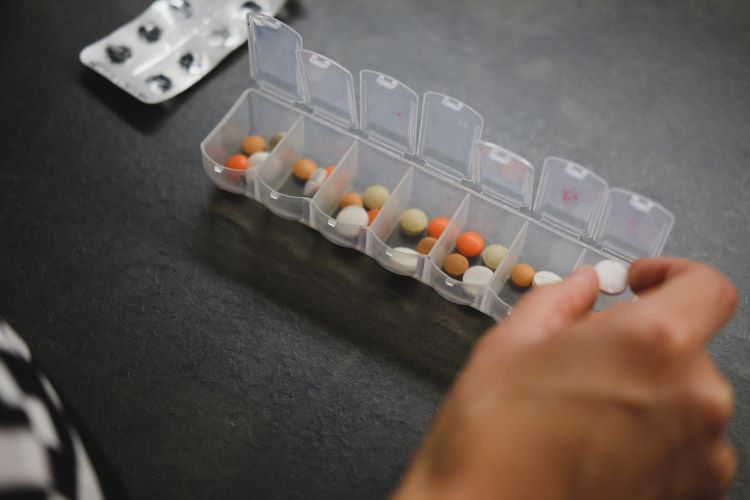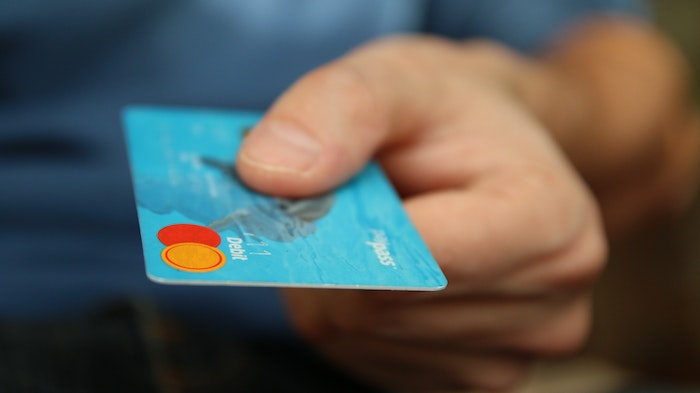There are rehabilitation programmes for all drugs, and rehab clinics have developed excellent working practices for treating all drug addictions.
The main drug addictions that are treated are heroin (and other opioid drugs), cocaine and cannabis although specialist rehab programmes have also been devised to treat ecstasy, amphetamines, crystal meth and LSD and several prescription-based drugs such as temazepam.
There are many addictive substances, each of which has its own chemical characteristics and its own specific physical and psychological effects on the people that use them.
For example, people take heroin because of the feelings of euphoria and pleasure it elicits, cocaine users gain physical and psychological bursts of energy and a positive mindset and cannabis users become very relaxed and calm after using the drug.
All these drugs are psychoactive and are therefore able to alter our brain chemistry and psychology and provide us with positive feelings, which is why people are motivated to keep on using the drug.
Unfortunately, by continuing to use drugs users will develop a physical and psychological dependence on the drug which will negatively impact their physical and mental well-being and negatively affect many areas of their lives.
Drug rehab involves treating the substance user’s physical and psychological dependence on the drug and providing them with the tools and resources to avoid future relapse. (8,9)

There are many effective treatments available in a drug rehab programme, which can be divided into several areas. The initial stage is the medical/pharmacological treatment stage, which seeks to address the patient’s physical dependence on the drug.
This is usually addressed by a detox procedure which aims to reduce the level of the drug in the body and minimise the negative withdrawal symptoms that people will experience when they stop taking the drug.
Detox treatment on its own only addresses a patient’s physical dependence and does not focus at all on treating the psychological and emotional reasons for a person’s drug use, so a client that only undergoes detox treatment without psychological interventions such as individual psychotherapy or following the 12-step program will relapse very quickly back into drug use
So, the psychological therapies that feature in the second stage of a client’s treatment programme are a vital treatment component to ensure clients continue their recovery journey and cease their drug use. (3,7,9)

People who become physically dependent on a drug will usually become more tolerant to the effects of the drug, meaning that if they use the drug regularly, they will gradually need to consume more of the drug to experience the same sought-after effects of the drug they experienced when they first started consuming the drug.
After consuming the drug for several weeks/months their body will have adapted to the presence of the drug and has become familiar with dealing with its psychoactive effects.
Another important aspect of physical drug dependence is the appearance of withdrawal symptoms that occur when substance users stop taking the drug after a period of regular, heavy, use the withdrawal symptoms they experience depend on the chemical characteristics of each drug, and withdrawal symptoms tend to be opposite to the main effects of the drug, usually causing negative physical consequences. (8,9)

Addiction treatment professionals refer to DSM5 to help them reach a diagnosis of addiction, although the term used may be substance use disorder (SUD) or by its unique drug addiction category such as opioid use disorder (heroin), cannabis use disorder or stimulant use disorder when diagnosing cocaine addiction.
In order to reach a diagnosis doctors will review the 11 criteria for each disorder which were set by the medical experts who contributed to DSM5.
The main criteria for most addictions (substance use disorders) are:
To ensure all clients receiving treatment are given a suitable treatment plan it is important to define the severity of their addiction. This is achieved by analysing how many of the 11 criteria for a substance use disorder clients meet.
If doctors feel a client’s symptoms and behaviour match only 2/3 of the criteria then they will be diagnosed with a mild SUD, if they match 4/5 of the criteria they will be deemed as having a moderate SUD. Any clients assessed as meeting 6 or more of the criteria will be diagnosed as having a severe SUD.

Clients seeking rehab for their substance use disorder can apply for NHS funding to cover the cost of their treatment, although it is unlikely this will be approved for the residential rehab treatment, as funding providers prefer to finance outpatient treatment instead.
This way more people will be able to receive effective treatment for their drug addiction.
Some people may have private medical insurance that will cover the cost of the drug rehab, either through a personally arranged healthcare policy or one organised by their employers.
All these policies differ though so it is important to ascertain the specific details of each policy to establish which specific aspects of drug rehabtreatment it covers.
Anyone who is seeking to finance treatment themselves is likely to gain immediate access to residential rehab which offers around-the-clock care. Generally speaking, the current cost of receiving inpatient rehab in the UK works out at £500 per day, which over a standard 28-day stay equals £14,000.
However, if you shop around you may be able to find treatment centres that offer rehab for as little as £1,000 per week but this may involve travelling to another part of the UK to receive treatment.
If you have been diagnosed with a substance use disorder then you will be required to go through a programme of medical and psychological rehabilitation.
If you feel your drug use is getting out of control and you are unable to stop taking drugs and your physical and mental health is deteriorating then you should visit a GP for an assessment.
If you experience withdrawal symptoms when you go for over one day without taking drugs then it is likely that you have developed a dependence on that drug.
Due to advancements in medical science and in the way addiction treatment is now organised, there are two main scenarios in which drug rehab can take place.
Drug addiction treatment can take place in a specialised residential setting for a period of 1-3 months although most patients stay for 28 days.
Often referred to as inpatient treatment clients do stay overnight at the premises for the length of their stay and are regularly monitored with medical and psychiatric support close at hand in case there are any physical complications or moments of psychological crisis during their time there.
Anyone seeking rehab for drug abuse can benefit from receiving medical and psychological treatment on an outpatient basis, which can be organised by your GP in collaboration with the local substance misuse team.
Patients can receive detox treatment and individual and group therapy while living in their own homes.
If a patient is unable to fund his / her treatment then they can apply for NHS funding for treatment, although the treatment they will receive will more than likely be as an outpatient as it is more cost-effective for the administrators controlling the addiction treatment budget to implement.
Patients following outpatient programmes will not be protected from negative influences that may tempt them back into drug use, however, if they live within a supportive and understanding environment the outpatient route may be suitable for them.

As part of the rehab admissions process for drug treatment, rehab centre staff will carry out a comprehensive assessment of you when you enter treatment to help design an accurate and detailed care plan for you.
The staff member performing this assessment will be guided by 6 key dimensions set by the American Society of Addiction Medicine which are considered important for shaping addiction treatment.
These 6 dimensions include key biological, psychological, social and environmental factors that need to be understood to treat each client’s addiction.
These 6 dimensions include:
The assessor will allocate each dimension a risk rating between 0-4 with those dimensions scoring 3-4 requiring specific attention when devising a client’s treatment plan.
Detoxification is a pharmacological intervention for treating drug dependence, it involves giving patients decreasing doses of the drug in a controlled, medical setting or administering a replacement drug that is chemically similar to their drug of choice.
There are medicines available to help facilitate drug rehab in a treatment process referred to as pharmacology, although this method is only really compatible to help patients withdraw from heroin and drugs from the benzodiazepine class such as temazepam.
There is no pharmacological treatment available to facilitate clients’ withdrawal from cocaine or cannabis due to the chemical structure of the drug. (3,8)
Heroin is a highly addictive opioid drug that can have a devasting effect on a person’s physical and mental health and has a very high relapse rate. Luckily, medications are available to help patients through the withdrawal (detox) process.
The drugs used are methadone and buprenorphine which are substitute drugs that are chemically similar to opioid drugs but are not so physically addictive and do not generate feelings of euphoria which tends to lead to psychological dependence.
Methadone or Buprenorphine are given to patients over a period of 1-2 weeks in gradually diminishing doses to help reduce the level of heroin from the client’s bloodstream and at the same time eradicate any unpleasant withdrawal symptoms the clients would have otherwise experienced.
When patients who have used heroin excessively attempt to give up the drug they will experience withdrawal symptoms due to the high levels of heroin in their bloodstream which lead to a range of withdrawal symptoms.
Methadone and Buprenorphine are chemically similar to heroin but have a longer half-life meaning they are slowly absorbed into the body, unlike heroin which has a short half-life and takes effect quickly when consumed.
This only leads to the user becoming addicted quicker as they will need to take heroin several times a day to keep withdrawal symptoms at bay.
Methadone and Buprenorphine only need to be taken once a day as they satisfy withdrawal for 24 hours and help the body to get rid of the toxic elements of heroin and stabilise the patient so that their physical dependence is brought under control.
There is also a medicine called Naltrexone available which is a drug used to help patients maintain abstinence and avoid relapse as it blocks the effects of any doses of heroin that users consume.

Cocaine is part of the stimulant class group and currently, according to DSM5, the official diagnosis is now referred to as stimulant use disorder.
There are now specially tailored treatment programmes for this disorder which in the early stages focus on supporting clients as they pass through the early stages of withdrawal which may involve challenging physical and psychological symptoms which need to be monitored and managed carefully.
The physical symptoms associated with cocaine withdrawal are not usually severe, and as there is no pharmacological detox treatment for cocaine addiction medical staff are on hand with symptom management advice or over-the-counter medication to ensure that any withdrawal symptoms are placated.
As cocaine is a drug that stimulates the central nervous system and causes feelings of euphoria patients may experience low mood and depressive symptoms during the withdrawal phase so regular monitoring of client’s mental health is important during this stage to check they do not become too psychologically distressed.
Physicians are, however on hand to prescribe anti-anxiety medication or antidepressants if deemed necessary.
There are also psychological interventions that practitioners use to treat psychological dependence, these include contingency management (CM) and cognitive behavioural therapy (CBT) both of which have been used successfully to treat cocaine addiction.

It is unlikely clients withdrawing from cannabis will suffer from severe withdrawal symptoms although they can be uncomfortable for some clients, and if that is the case then medical practitioners will be on hand to offer symptom management guidance or provide them with symptom-specific medication so that the symptoms do not become unbearable.
Due to the nature of cannabis addiction and the high levels of THC found in some cannabis doses, some patients withdrawing from cannabis may experience mental health disturbances, psychotic symptoms or extreme anxiety during the first 2-3 days of withdrawal.
It is therefore important all clients are monitored carefully as they are vulnerable to self-harm and erratic, impulsive behaviour.
After the patient is in a stable state then clients can begin their programme of psychological therapies and drug education sessions.
Psychological dependence refers to the psychological and emotional reasons behind people’s drug use.
For example, it has been established that many substance users take heroin because it generates feelings of pleasure, excitement and an elevated mood, cocaine provides people who consume it with bursts of physical and mental energy and a positive mindset and cannabis makes people feel relaxed and releases them from anxious and stressful states.
Over time substance users begin to associate their use of the drug with the positive feelings that the drug provides for them and their brain and cognitive system begin to cement this association.
This leads to them relying on drugs to boost their mood and provide them with positive emotional experiences when they feel low, which sets the foundation for psychological dependence.
The key area of the brain responsible for positive emotions is the dopamine pathway in the brain, known as the reward pathway.
Many psychoactive drugs contain chemicals that attach to receptors in this area of the brain and produce feelings of pleasure and euphoria which ensures that users have a strong motivation to continue using the drug in the future.

Engaging in cognitive behavioural therapy sessions enables clients to understand their own dysfunctional thinking patterns and helps them to identify their inner beliefs and environmental triggers that lead to drug cravings and participation in drug-taking behaviour.
DBT has over recent years evolved into a very effective therapy in the area of addiction treatment, the strength of using this therapy in drug rehab is that it teaches clients important psychological resilience techniques which can help them tolerate difficult emotions without being overwhelmed and vulnerable to engaging in substance use.
REBT is another type of therapy useful for the treatment of addictions, it was developed by Albert Ellis in the 1950s.
This therapy helps clients identify the irrational beliefs and negative thought patterns they possess that could lead to psychological distress and behavioural problems such as eating disorders and substance use.
After helping clients identify these maladaptive thought patterns therapists will teach clients new psychological strategies to adopt in place of the older dysfunctional thinking patterns, which have more of a rational underpinning to them, which should help them achieve long-term abstinence
Group therapy plays an important part in patients’ psychological rehabilitation, people who become addicted tend to have isolated themselves during their prolonged period of substance use and have lost the ability to connect to their fellow humans.
Group therapy sessions, facilitated by a qualified addiction therapist will offer all group members the chance to explore their feelings and experiences with drug use in the presence of others who have been through similar circumstances in their lives.
The group setting also enables people to understand their psychological processes and how they interact with others around them, this can provide them with a great deal of insight into how they can improve their communication patterns and have better relationships. (12)
CM is more of a psychological strategy rather than a form of therapy, CM uses principles from behaviourist psychology and uses the concept of rewards to encourage abstinent behaviour.
For example, if patients are able to go for a period of time without taking drugs and can prove this via a drug test then they will be given money or material goods to reward their efforts. This approach tends to work well in treating cocaine addiction and has reported excellent results.
Alcoholics Anonymous’ 12-step model has been adapted into a therapeutic programme by many addiction treatment centres and used as part of the client’s therapy programme.
One of the main themes of Alcoholics Anonymous’ core beliefs is that the principle of fellowship is important in helping people achieve abstinence. Therefore it is strongly recommended that clients in drug rehab regularly attend support groups such as Narcotics Anonymous and Marijuana Anonymous and talk about their feelings and experiences around their drug use.
The crux of the 12-step recovery model involves clients working through a series of personal challenges and experiences that they are required to reflect on.
Working through these steps forms the basis of the client’s recovery and involves acknowledging their powerlessness over drugs, understanding whom they have hurt along the way through their behaviour and contemplating their spirituality to name but three. (3)
MI is a form of counselling that involves assisting clients to make a decision to change their drug use patterns and simultaneously providing them with the courage to accept responsibility for the decision.
It involves the therapist exploring with the client the good things and not-so-positive things about their drug use and exploring any concerns they have about their drug use and treatment plan. (6)
There is a wide range of holistic therapies and treatments that can help clients recover from an addiction that is used by treatment centres these days. These include art therapy, music therapy (including drum therapy), equine therapy and adventure therapy.

Many clients seeking rehabilitation for drug abuse will also be diagnosed with other mental health conditions such as depression, anxiety and post-traumatic stress disorder, or be exhibiting symptoms of such conditions and in need of a professional diagnosis.
All drug addiction treatment centres have a specialist dual diagnosis team who are skilled at simultaneously treating substance use disorders and mental health conditions as they understand the way the two conditions interact with each other.
After going through a rehab programme each client needs to continue working hard on their recovery to ensure they live a drug-free life and focus on their life goals. There are several areas considered important to aid recovery.

A vital area of addiction recovery treatment involves relapse prevention education, this is where clients are given psychological strategies to ensure that they maintain their abstinent behaviour and do not slip back into drug use.
As part of the recovery process rehab centres run relapse prevention workshops which encourage clients to think of risky situations they may encounter in the future that may trigger their substance use.
These risky situations could be spending time in the company of certain people, or visiting certain locations that have a strong association in their minds with drug use.
Some clients in rehab may reflect on how they tend to use drugs when they feel unable to cope with negative emotions such as sadness and anger.
Once these situations have been acknowledged the clients and psychological therapists can collaborate to design and practice strategies they can use when they do face these situations in the future. (3)
Below are some techniques that can help during relapse prevention:
An abundance of research has concluded that good social and community relationships are hugely beneficial for mental well-being.
Addiction is a disease that feeds off loneliness and isolation and many people report receiving great benefits from joining sports clubs, choirs and local societies where they can build strong connections with people with similar interests to themselves.
After leaving rehab it is tempting to assume all the hard work is done and you can just get on with your life, this is very much an incorrect assumption to make.
Because of the AA’s ethos of fellowship, it is important to continue to remain in contact with your fellow support group members to ensure you continue to work hard on your recovery and to keep putting in the necessary work.
It’s important for people to identify what they want out of life and to focus on achieving the personal and professional goals they have set themselves to make their lives meaningful.
This may involve developing spiritual practices to help them stay clear of the short-term gratification associated with drug use.
The next step in your life is down to you. Choose Rehab 4 Addiction and let us help you on your road to recovery.
For more help & advice on our drug rehab process, call us now on 0800 140 4690 or submit an enquiry form.
(1) Black, D., Grant, J. (2013) DSM5 Guidebook: The Essential Companion to Diagnostic and Statistical Manual of Mental Disorders, 5th Edition. APP. London.
(2) David, D., Cristea, I., Hoffman, S. (2018). Why Cognitive Behavioural Therapy is the Gold Standard of Psychotherapy. Frontiers in Psychology. 9:4 available @Why Cognitive Behavioural Therapy Is the Current Gold Standard of Psychotherapy (nih.gov)
(3) Herie, A. & Skinner, W. (ed) (2014) Fundamentals of Addiction: A Practical Guide for Counsellors. CAMH. Canada.
(4) Kahan, M. (2014) Physical Effects of Alcohol and Other Drugs. In Herie, M. & Skinner, W. (ed) Fundamentals of Addiction: A Practical Guide for Counsellors. CAMH. Canada.
(5) Kennerley, H., Kirk, J., Westbrook, D. (2015) An Introduction to CBT: Skill and Applications. SAGE Publications.
(6) Miller, W. & Rollnick, S. (1991) Motivational Interviewing: Preparing to Change Addictive Behaviour. Guilford Press. New York.
(7) Morse, G. (2007) Care of Opiate Users: Detoxification in Beaumont, B. (ed) Care of Drug Users in General Practice Radcliffe Publishing. Oxford.
(8) Moss, A, Dyer, K (2010) The Psychology of Addictive Behaviour. Palgrave McMillan. New York.
(9) Rassool, G.H. (2011) Understanding Addictive Behaviours. Palgrave MacMillan. New York.
(10) Wild, T.C., Wolfe, J. (2009) The Clinical Course of Addiction Treatment: The Role of Non-Specific Therapeutic Factors in Miller, P. (ed) Evidence-Based Addiction Treatment. Academic Press. London.
(11) Wills, S. (2005) Drugs of Abuse. Pharmaceutical Press. London.
(12) Yalom, I.D. (1995) The Theory and Practice of Group Psychotherapy. Basic Books. New York.
(13) Yoon, R. (2014) Opioid Addiction, in Herie, M. & Skinner, W. (ed) Fundamentals of Addiction: A Practical Guide for Counsellors. CAMH. Canada.